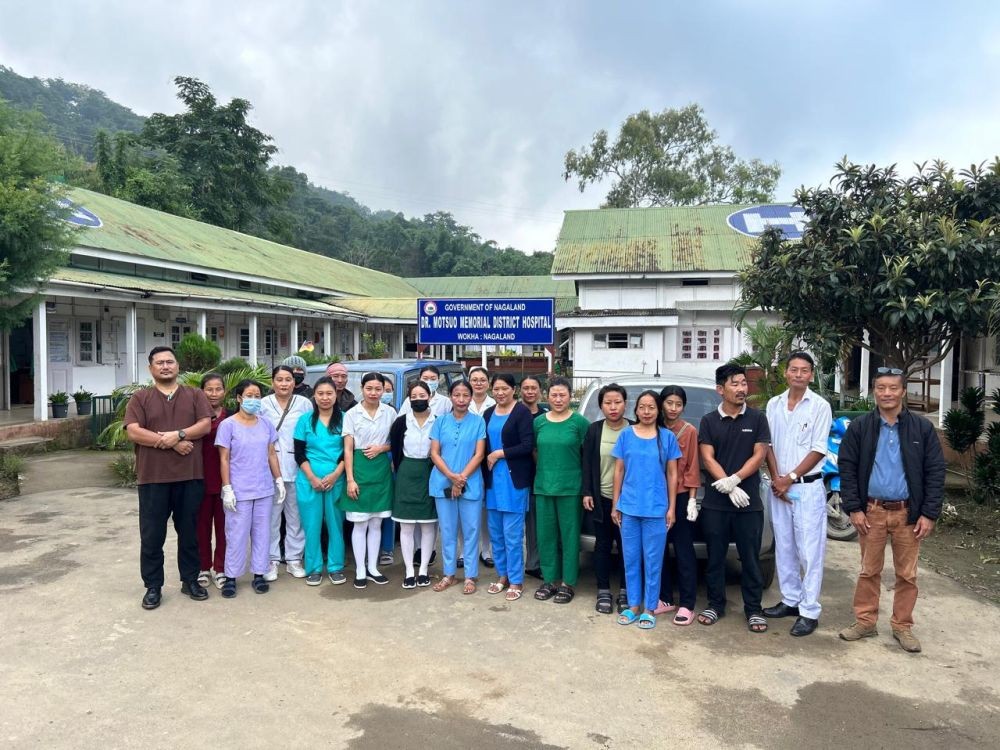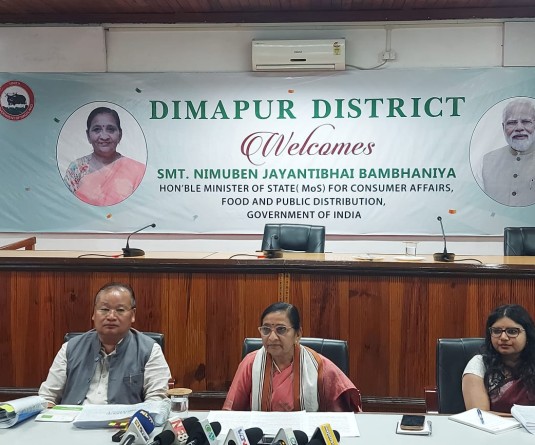Participants of the programme to observe World Hospice and Palliative Care Day in Wokha.

Wokha, October 14 (MExN): World Hospice and Palliative Care Day was observed at the Conference Hall of Dr Motsuo Memorial District Hospital, Wokha, bringing together healthcare professionals and community members to raise awareness about the significance of palliative care for individuals with serious illnesses.
Dr. Renben Tungoe spoke on the importance of palliative care, explaining that it originates from the Latin term palliare, meaning “to cloak,” symbolizing a protective layer that provides comfort and shields patients from the adverse effects of their conditions. He highlighted that palliative care is a specialized approach that focuses on enhancing the quality of life for both patients and their families, addressing suffering without attempting to treat the root causes. This care extends to various serious illnesses, including cancer, heart disease, and acute trauma, and involves a team of doctors, nurses, nutritionists, social workers, and spiritual leaders, who collectively offer physical, emotional, psychological, social, and spiritual support.
Dr N Mhonchan Kithan, Medical Superintendent of the hospital, emphasized the vital role of family caregivers in palliative care. He referred to family members as the “cornerstones” of palliative care, as they are responsible for many practical tasks and provide emotional support. Caregivers not only aid with daily activities, such as dressing and toileting, but also ensure patients follow balanced diets and take their medications on time. He highlighted that these efforts contribute significantly to improving the lives of those dealing with severe illnesses or frailty.
The program also shed light on the diverse range of conditions that benefit from palliative care, including Alzheimer’s disease, Parkinson’s disease, lung disease, stroke, liver disease, kidney disease, HIV/AIDS, multiple sclerosis, major organ failures, drug-resistant tuberculosis, and the extreme frailty of old age.





